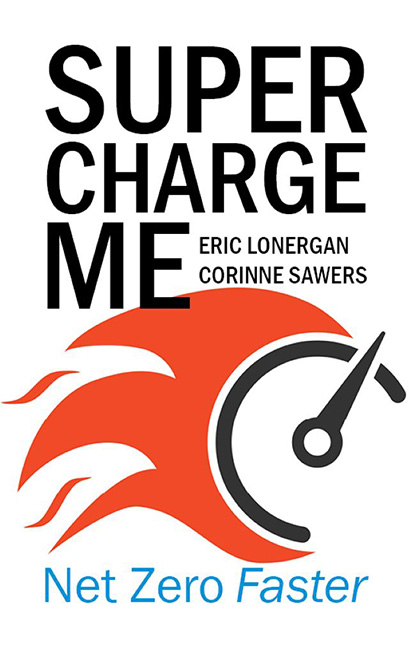Book contents
- Frontmatter
- Contents
- Acknowledgements
- Introduction: A Failure of the Mind
- 1 Supercharging: What is it?
- 2 Corporate Philosophers
- 3 Money Gets the Message
- 4 Supercharge the Individual
- 5 Supercharge the Nation
- 6 Supercharge the World
- 7 Why This is Not a Book About Trees
- Conclusion: Speaking With One Voice
- Notes
- Index
Introduction: A Failure of the Mind
Published online by Cambridge University Press: 20 January 2024
- Frontmatter
- Contents
- Acknowledgements
- Introduction: A Failure of the Mind
- 1 Supercharging: What is it?
- 2 Corporate Philosophers
- 3 Money Gets the Message
- 4 Supercharge the Individual
- 5 Supercharge the Nation
- 6 Supercharge the World
- 7 Why This is Not a Book About Trees
- Conclusion: Speaking With One Voice
- Notes
- Index
Summary
“If our poverty were due to famine or earthquake or war – if we lacked material things and the resources to produce them, we could not expect to find the Means to Prosperity except in hard work, abstinence, and invention. In fact, our predicament is notoriously of another kind. It comes from some failure in the immaterial devices of the mind, in the working of the motives which should lead to the decisions and acts of will necessary to put in movement the resources and technical means we already have. It is as though two motor-drivers, meeting in the middle of a highway, were unable to pass one another because neither knows the rule of the road. Their own muscles are no use; a motor engineer cannot help them; a better road would not serve. Nothing is required and nothing will avail, except a little, a very little, clear thinking.” John Maynard Keynes (1933)
There are many great books on climate change, but very few address what we need to do, in a convincing way. Personal “todo” lists suggesting we eat less meat, buy an electric vehicle, and fly less, seem trivial relative to the challenge of climate change. We need serious policies at the individual, corporate,national and global levels, which can rapidly accelerate the pace of change.
There is also a lack of clear thinking. A collapse in global CO2 emissions does not require a complete change in how we live our lives, or a huge increase in taxes. It requires ending our dependence on fossil fuels. This presents us with an enormous investment challenge. Most of the world's electricity, transport, buildings and industry are powered using fossil fuels. We need to power them with renewable energy. If electricity is generated with zero emissions, and transport, buildings and industry are all powered by electricity, global emissions would fall by around 75 per cent. This is the greatest reallocation of capital in human history. We should be doubly angry if we don't rise to the challenge – investment is the means by which we become wealthier.
The quote above from the economist John Maynard Keynes was written during the Great Depression. Keynes observed that mass unemployment was a “failure of the mind”. History has proven him right.
- Type
- Chapter
- Information
- Supercharge MeNet Zero Faster, pp. 1 - 8Publisher: Agenda PublishingPrint publication year: 2022

